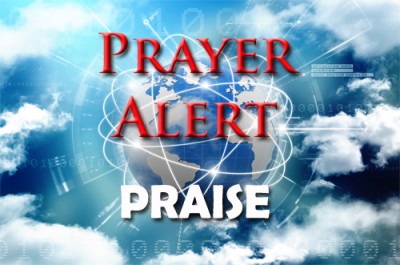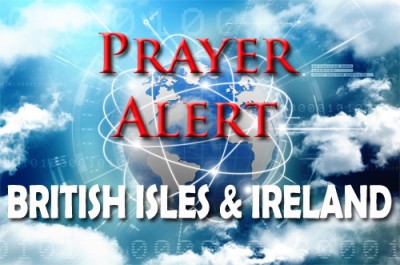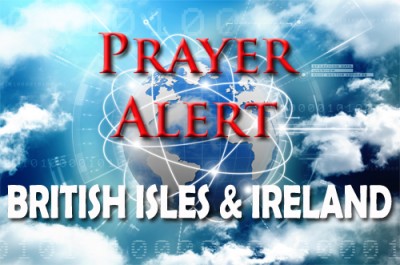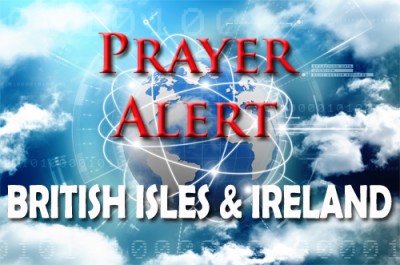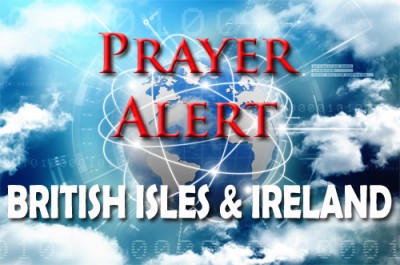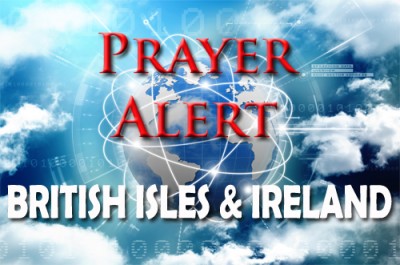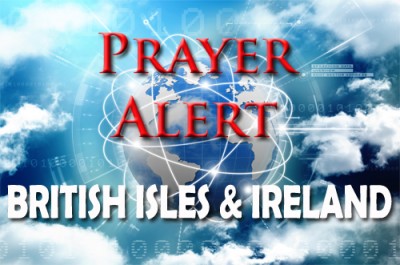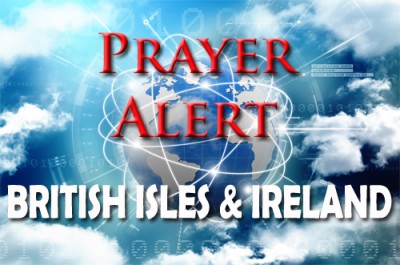Radical Muslim gives life to Christ
28 Jul 2017Most stories coming out of war zones are disheartening, but every now and then there will be a reminder that God is still at work. Recently, Open Doors USA reported on the miraculous conversion of a Muslim extremist in war-torn Syria. He decided to give his life to Christ after witnessing a Christian church service. One of the pastors choosing to stay in the city was hosting a church event, feeding the community and then sharing the Gospel message. As he was preparing his sermon he saw a man with a beard without a moustache, an indication of fundamental, extremist Islam. They were concerned and prayed about it, then they invited him in, keeping an eye on him. They fed him, he heard the sermon, and then gave his life to Christ.
Friday Focus: the gift of rest
28 Jul 2017Do we know when to stop and how to take time out to restore our souls? Let’s remind ourselves that our God is a God of rest, a God who understands balance, who values down time. It is not good to be always busy, always active, always working. To give to others we must allow ourselves to rest in God.
(Jude Levermore, the Methodist Church)
Modern church: keeping up with world values?
28 Jul 2017Justine Greening, equalities secretary, says the church should reflect ‘modern attitudes’ and public opinion, keep up with the modern world and allow same-sex couples to marry in church. The issue has split the church, which would have to call on the Government to change the law. Ms Greening told Sky News, ‘I think it is important that the church keeps up and is part of a modern country.’ Pray for God to lead His people; may they reject ‘modern man’ agendas in parliament and the media. Meanwhile disaffected conservative evangelicals are expressing wishes for an alternative Anglican structure in Britain. See
Modern church: digital labs
28 Jul 2017The Church of England has launched a programme called Digital Labs, and is looking for coders, creatives and techies with the skills and passion to use technology to reach more people for Christ. Pray for God to prompt those with the knowledge and ideas to create apps, websites, social media campaigns and programmes to hear His call into ministry. May God breathe Holy Spirit-powered innovative ideas and excitement about faith in Jesus across the internet, bringing renewal and addressing some of the deep-rooted missional challenges.
School holidays, hungry children
28 Jul 2017Foodbanks are appealing for more food than normal; the school holidays have started. For many parents, the summer holidays bring fresh challenges for meagre budgets. The Trussell Trust handed out 4,412 more three-day emergency food parcels for children last July and August than during the previous two months. Almost half go to primary school pupils, and 27% to children, including babies, under the age of four. School holidays financially stretch families struggling to get by. Without free school meals, and with extra childcare costs, families who just about stay afloat risk going under. There is a food poverty crisis in the UK, and the government is starved of ideas. In 2016 teachers reported children returning to school in September sluggish and visibly thinner. Pray for the parents skipping meals, or working out the smallest number of calories they can get by on, or only eating what is left on their children’s plates.
Grenfell Tower highlights inequality
28 Jul 2017Nearly two thousand homes are empty near the Grenfell Tower, while 100+ families are homeless. Kensington and Chelsea Council, which owns the tower, revealed that dozens of vacant homes may have been empty for 11 to 15 years. 260 properties stand vacant in southern parts of the borough, the opposite end to Grenfell in the poorer north. These vacant homes are associated with the ‘buy-to-leave’ phenomenon, which involves super-rich foreigners buying high-end properties not to live in, but as an investment. The fire has revealed a terrible message about social inequality in today’s cities. Labour leader Jeremy Corbyn faced controversy when he called for Kensington homes left vacant by rich overseas investors to be ‘requisitioned’ for survivors, calling the borough ‘a tale of two cities’.
Christian NHS worker’s legal battle
28 Jul 2017On 27 July Victoria Wasteney attended court in the next stage of her long legal battle. As head of forensic occupational therapy at a London hospital she was suspended for 'gross misconduct' for nine months and received a written warning, following allegations of 'harassment and bullying' by a Muslim staff-member. She appealed to the Employment Appeal Tribunal when the judge recognised the significance of her case in protecting religious freedom. The judge said that the tribunal should consider whether the original ruling had properly applied the European Convention on Human Rights' strong protection of freedom of religion and expression. When she lost her appeal, Victoria applied for permission to appeal the tribunal's decision to the Court of Appeal, but this was refused. She is now seeking to challenge this, with support from Christian Concern.
Care of the vulnerable is a measure of a civilised society. Care home placements for adults with complex needs are assessed and funded according to the nature and severity of mental/physical disability. T is unable to speak, has severe autism and epilepsy, and has been assessed as lacking the mental capacity to make decisions. He needs specialist care. He was stabbed 20+ times by another resident in his previous accommodation and had been moved to Hillgreen. JL, by contrast, is a predatory sex abuser, has mild learning disabilities, no mental disorder and a long history of sexual offending. He was transferred to Hillgreen while awaiting trial, charged with raping an autistic woman in his previous home. The two should never have been living under the same roof. Everyone at Hillgreen was aware of the risk JL posed. Outside the care home he was permanently under supervision. Inside, despite many warnings, he was subject to no such restrictions. JL raped T.
